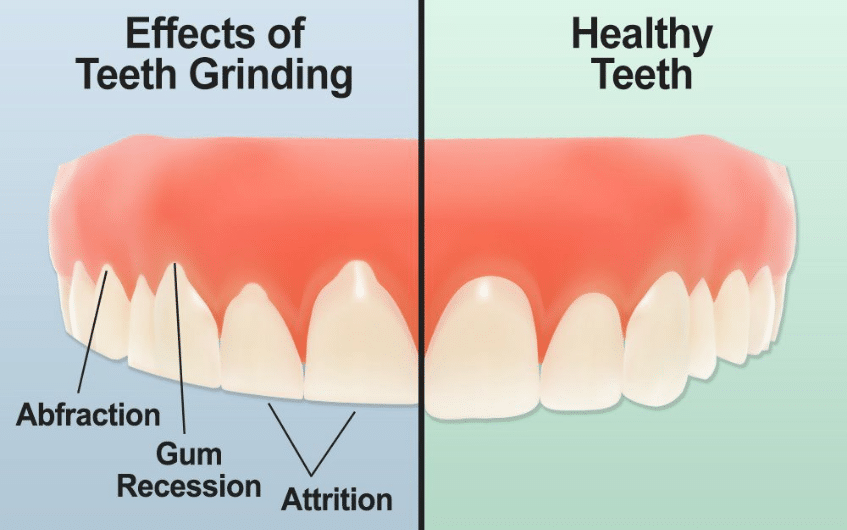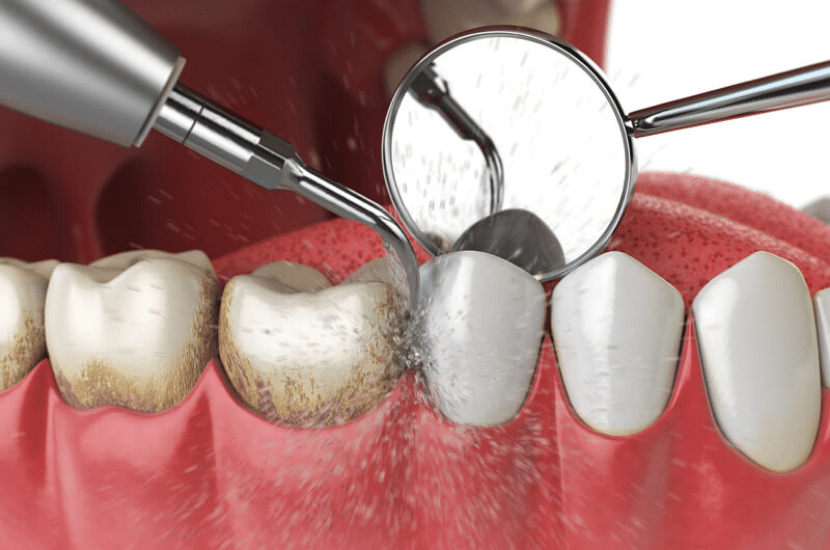
Teeth Grinding: Symptoms and Treatment
Do you often experience headaches and jaw pain during the day? Do your teeth ache and your temples throb? If so, you could have a teeth grinding disorder called bruxism.
Teeth grinding is a serious issue that poses a threat to your dental health and overall comfort. Nobody wants to walk around with teeth grinding-induced migraines all day! Here’s what you need to know about this dangerous habit and how you can stop it.
Signs and symptoms of nighttime teeth grinding
Nighttime tooth grinding is tricky to identify because it occurs when you’re completely unaware of the behavior. Since chronic clenching and grinding puts so much pressure on the muscles, tissues, teeth, and other structures around the jaw, symptoms can be felt long after the grinding stops and you get out of bed.
A few of the most common bruxism symptoms include the following:
- Jaw pain and stiffness
- Sore gums
- Sensitive or broken teeth
- Clicking jaw joints
- Chronic dull headaches
- Earaches
- Flat, short, or blunt teeth surfaces
If you sleep in the same bed or room as another person, you can ask that person to listen for sounds of grinding overnight. The scraping sound of teeth grinding over each other is usually disruptive, unpleasant, and easy to hear.
The damage caused by nighttime teeth grinding
Chewing food, talking, smiling, and feeling confident are all made possible by a full and healthy set of teeth. Bruxism threatens the health of your teeth by wearing them down, sometimes to stumps. When your teeth become fractured, loose, or damaged, you may find yourself needing bridges, crowns, implants, or even dentures in order to save your mouth and reduce your pain.
In addition to the direct damage to your teeth, bruxism also can lead to tension headaches, facial pain, and a condition called TMJ disorder that is defined by problems with the jaw and facial muscles. All of these problems cause enough pain to interrupt your daily activities and create unbearable suffering.
The exact cause is unknown, but it’s believed that stress and anxiety play the biggest role. Other causes of teeth grinding in Cypress, TX include excess consumption of caffeine, snoring, sleep apnea, crooked teeth and a misaligned bite.
What to do if you suffer from bruxism?
If you experience one or more symptoms of bruxism, you should contact a dentist near you for teeth grinding. Your dentist can provide you with a custom night guard to relieve the pressure on the teeth. In some cases, your dentist near you may also suggest orthodontic treatment for proper jaw alignment.
Most teeth grinding cases can be fixed with a custom mouth guard in Cypress, TX. When you wear the night guard, they act as a barrier between the upper and lower jaws. Even if you grind or clench your teeth during the night, the guard serves as a cushion for the muscles and lightens the tension. This protects your enamel while preventing any jaw or face pain.
While you can find night guards over-the-counter; the fitting will not be very effective to ease your muscles. A custom-fit mouth guard by a dentist will ensure maximum effectiveness and highest quality. Plus, if you have a misaligned bite or a missing teeth, an over-the-counter night guard will not fit snuggly and can be uncomfortable too.
If you grind your teeth and want to put an end to those headaches and jaw pain, contact us today! At Emmy Dental Of Cypress, we will thoroughly examine your bite and provide you with a custom mouth guard. Contact us for the best dentist for teeth grinding in Cypress TX today!



